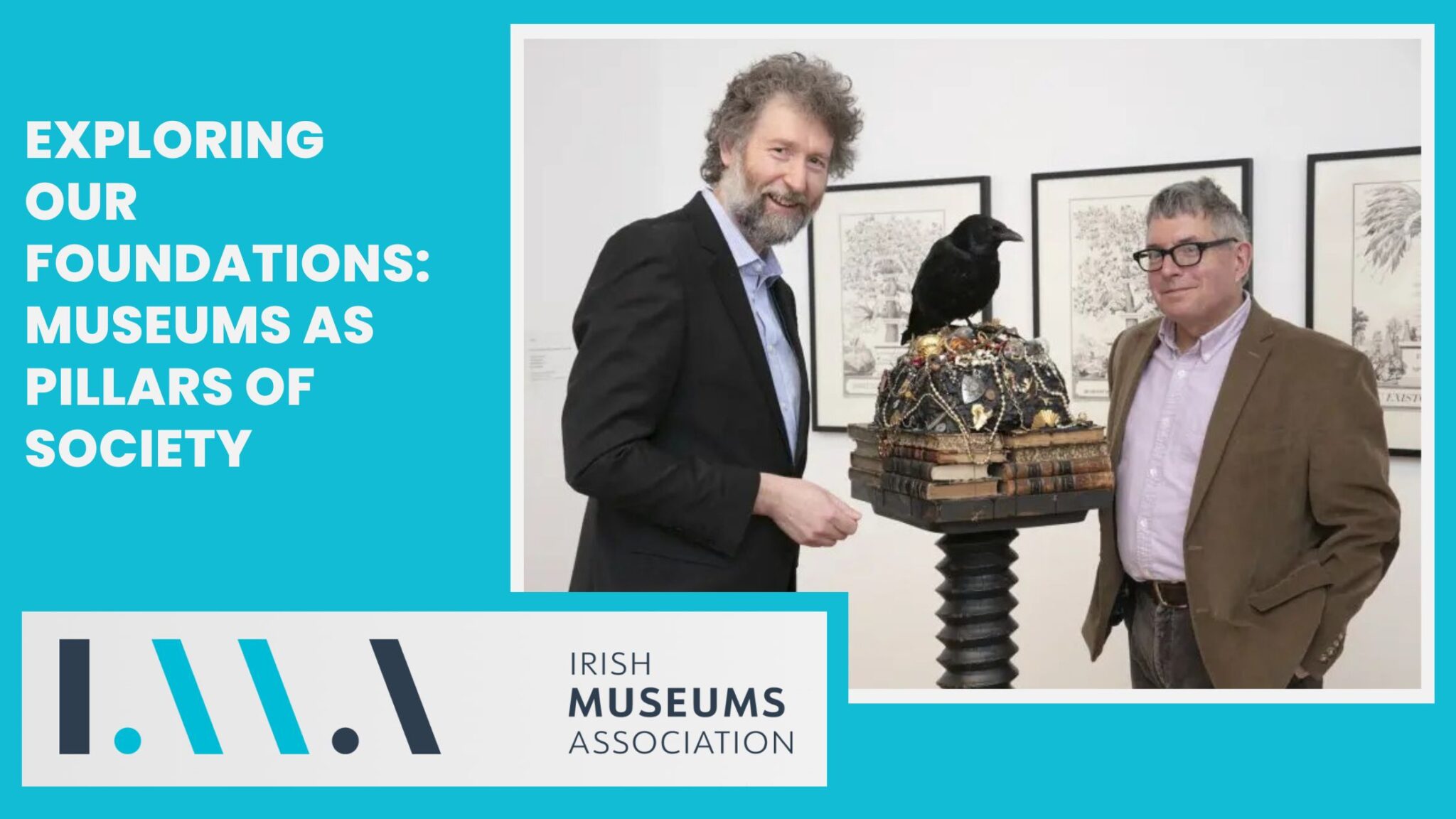Book Now | Exploring Our Foundations: Museums as Pillars of Society from The Irish Museums Association (IMA)
Museums serve not only as guardians of heritage, but also as dynamic environments for research, exchange, and interpretation. As part of National Heritage Week 2025, this online conversation between Mark Dion, contemporary artist and Michael Dempsey, Head of Exhibitions at the Dublin City Art Gallery The Hugh Lane, will explore the role of museums as foundational spaces in society. Taking Dion’s previous solo exhibition “Our Plundered Planet” (2019) at the Hugh Lane Gallery, as a starting point, they’ll examine how artistic and curatorial practices help museums serve as vital, evolving pillars in our communities.
The Irish Museums Association (IMA) is an all-island network for the Irish museum community. The IMA promote and support the museum sector through activities that highlight the value of our collections and the contribution of museums to our society as places of learning, conservation, research, and interpretation.
Join us for this conversation on the evolving purpose of museums and their enduring importance as cornerstones of civic and cultural identity.
This event is free of charge, registration is necessary to receive the online link.
Speaker Bios:
Michael Dempsey is Head of Exhibitions at Hugh Lane Gallery and has more than twenty-five years’ experience in organizing and developing exhibitions and programmes in Ireland and Europe. Through his work he has developed new hybrid ways of approaching cultural production within communities. A long-established Curatorial, University and Museum background his work has challenged debates around cultural heritage and institutions through his research of current theories/trends in contemporary art and by his investigations into new forms of exhibition making.
Mark Dion is a conceptual artist from the United States His work examines the ways in which dominant ideologies and public institutions shape our understanding of history, knowledge, and the natural world. The job of the artist, he says, is to go against the grain of dominant culture, to challenge perception and convention. Appropriating archaeological, field ecology and other scientific methods of collecting, ordering, and exhibiting objects, Dion creates works that question the distinctions between ‘objective’ (‘rational’) scientific methods and ‘subjective’ (‘irrational’) influences. The artist’s spectacular and often fantastical curiosity cabinets, modelled on Wunderkammen of the 16th and 17th Century, exalt atypical orderings of objects and specimens. Dion also frequently collaborates with museums of natural history, aquariums, zoos and other institutions mandated to produce public knowledge on the topic of nature. By locating the roots of environmental politics and public policy in the construction of knowledge about nature, Mark Dion questions the objectivity and authoritative role of the scientific voice in contemporary society, tracking how pseudo-science, social agendas and ideology creep into public discourse and knowledge production.

